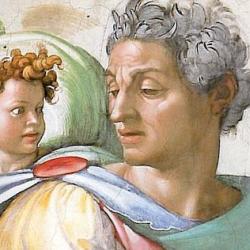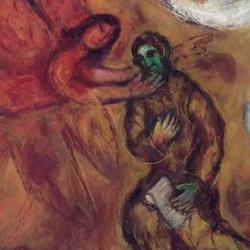Translations confuse the point of Isaiah 2:9. The NAS has “So the common man has been humbled, and the man of importance has been abased, but do not forgive them.” The italicized words are not in the Hebrew, which reads more simply: “And bowed down will be man ( adam ) and lowered will be the man” ( ish ).
The verse makes perfect sense in the context of v. 8, which describes the land filled with idols that men worship. In fact, the word “worship” in verse 8 and the word “be bowed” are the same in Hebrew, though the verbs are used in different aspects (hitpael in v. 8, niphal in v. 9). Verse 9 is simply reinforcing the condemnation of v. 8: Men make idols and worship them; they are bowed down before them, and lower themselves before them.
The mistranslation of verse 9 also makes it difficult to see the way Isaiah develops the thought in the following verses. Verse 11 speaks of the effects of Yahweh’s coming: When He comes, the eyes of the high man ( adam ) will be lowered ( shafal , same verb as in v. 9) and the lifting up of men (form of ish ) will be bowed down ( shachach , same verb as in v. 9). The lofty ones of verse 11 are the idolaters of verse 9, a point reinforced by the use of a form of gibeah , high place, to describe the “loftiness” of the proud.
Though by their posture idolaters seem low, they are in fact proud men who worship their own works. Their punishment fits the crime: Those who bow before idols will be bowed down in terror of Yahweh; those who lower themselves before the works of their own hands will be lowered.










